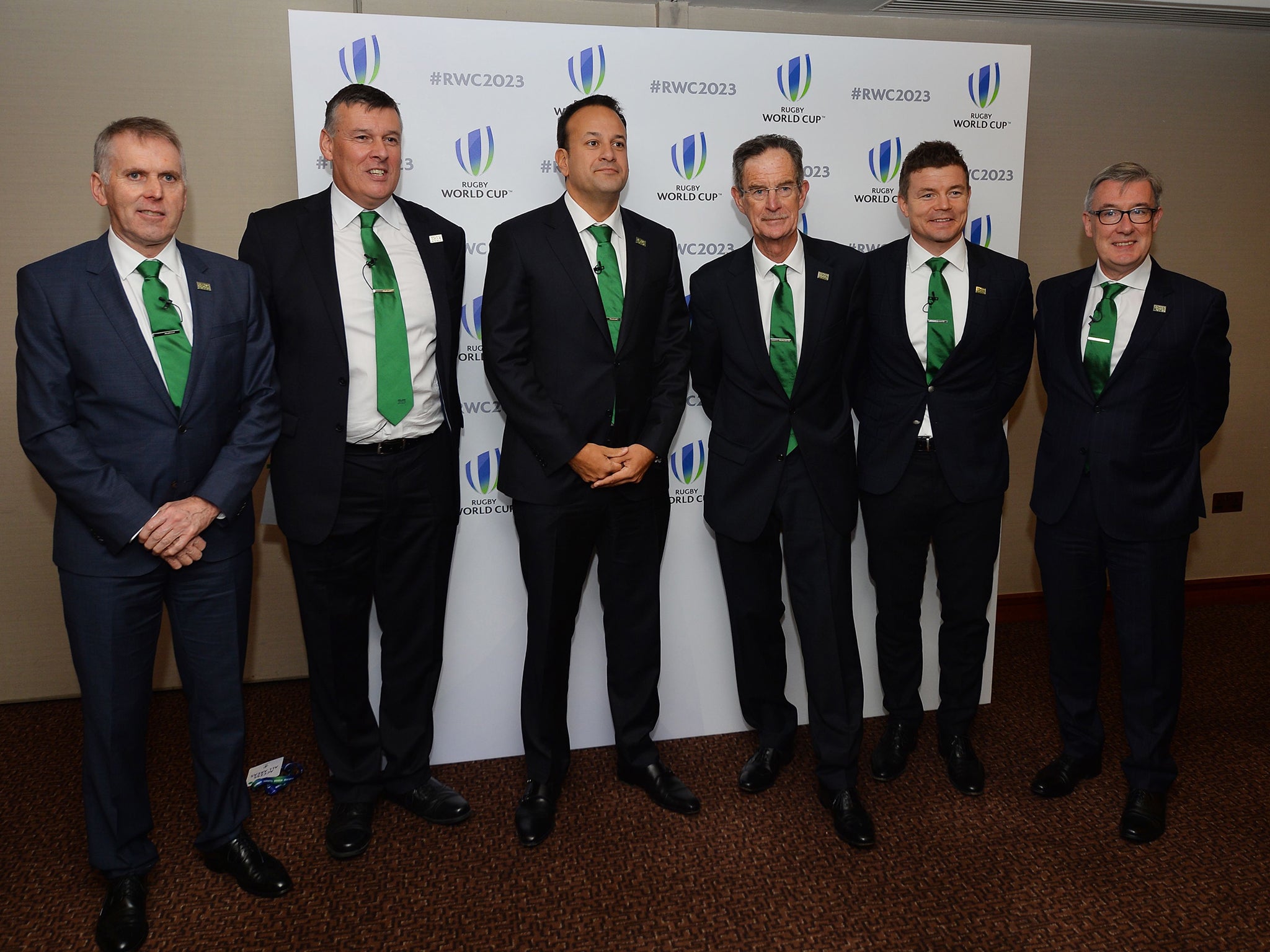Rugby World Cup 2023 should go to Ireland and not just because Theresa May has pledged the UK's backing
The final chance for Ireland, France and South Africa to push their case to host the tournament saw the British Prime Minister get behind the Irish campaign

As Theresa May threw her support behind Ireland’s 2023 Rugby World Cup bid, the French revealed their ace in the pack in the form of New Zealand great Jonah Lomu’s two sons. But once the dust settles on the PR stunts, there’s only one place that really deserves to host the tournament.
Off the back of a hugely successful Women’s Rugby World Cup this summer and their first ever victory over the All Blacks last year, Ireland is asserting itself as a rugby nation. The Emerald Isle offer four competitive professional sides that, at a time of European divide, unites a country that has been split by conflict and war in the past.
Players do not turn out for Northern Ireland or the Republic of Ireland, but for Ireland, and if this doesn’t send out the right message about the global event, what does?
Then there was the support shown from leading political figures. British Prime Minister Ms May’s support for the Irish campaign was revealed in London at the final chance for Ireland and France, along with South Africa, to press their claims as tournament hosts. Ireland’s Taoseach Leo Varadkar confirmed the United Kingdom’s support, with Ms May sending a letter to the Rugby World Cup organisation to announce her backing.
"The main reason I'm speaking to Theresa May is around Brexit and also restoring the institutions in the north," said Mr Varadkar, who was due to meet Ms May at Downing Street.
"However, she has written to World Rugby, supporting our bid, and assuring them that the United Kingdom government is behind it too. And I'm very grateful for the fact that she's done that.
"I'm really delighted to be here in person. I wouldn't have missed today for anything."
That last line from Mr Varadkar is important, as while he was in attendance, French President Emmanuel Macron distanced himself from his nation’s bid, and declined to provide and video message of support as he had previously pledged to do so.
In response, the French did what they usually do when it comes to rugby union. They threw money at it. Their bid made the bold claim that they would make the tournament organisers more money than either of their rivals, and even hinted as a complete revamp that sees all 20 nations remain at the tournament for the duration of the World Cup. More match, more fans, more money.
“Of course they are going to say that, but we would say otherwise,” said Mr Varadkar. “Our bid is fully backed by the government. I'm here in person, the only head of government to be here in person.”
That’s not all Ireland offer. Along with a promise of a cross-government plan to underwrite the cost of staging the tournament, Ireland 2023 were also able to roll out rugby great Brian O’Driscoll and music icons Bono and Bob Geldof, with inspirational video clips featured from both.
But what will make the 2023 Rugby World Cup so special, should it go to the Irish, is the feel-good factor that will undoubtedly spread across the nation through the fans. The 2016 European Championships in France displayed some of the worst in football fans with violent clashes across the country, but it was also a demonstration of the best of them as the Irish captured hearts and imagination across the country with their good natured charm and welcoming humour. The Irish are a knowledgeable fan base, with Munster, Leinster and Ulster all steeped in European history and Connacht really helping to strengthen the Irish game, resulting in passionate support up and down the land.
There is also the national team’s calibre to consider. Ireland once again spoiled the English Six Nations grand slam party earlier this year and, having beaten the All Blacks in Chicago last October, have shown they are able to rival the best. They have won the Six Nations twice in the last four years, with France failing to lift the trophy since 2010, and the decline of Les Bleus in recent years is not something that should be rewarded.
So here’s hoping to the right decision on 15th November when World Rugby announces the hosts, and to spine-tingling nights at Thomond Park, country-unifying days at the Kingspan Stadium and a Dublin final to remember in six years’ time.
Subscribe to Independent Premium to bookmark this article
Want to bookmark your favourite articles and stories to read or reference later? Start your Independent Premium subscription today.

Join our commenting forum
Join thought-provoking conversations, follow other Independent readers and see their replies